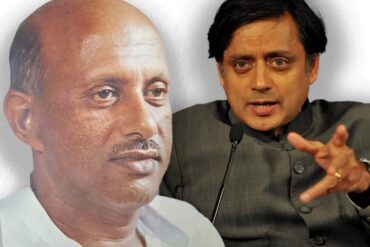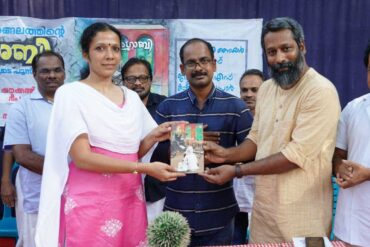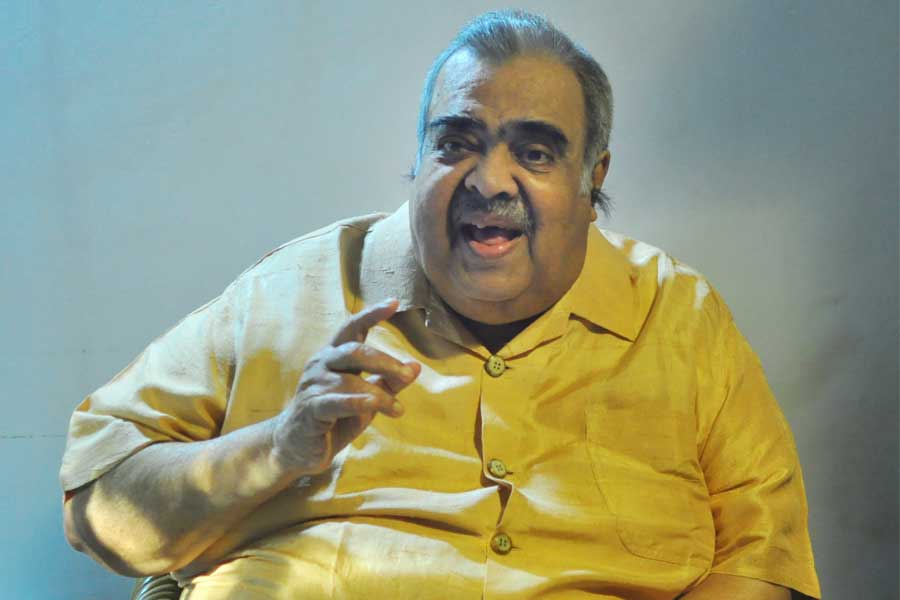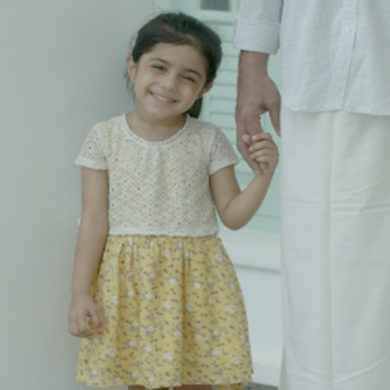K P Unnikrishnan, 83, is a veteran politician. After being an ardent Indira Gandhi loyalist in the 1970s, he distanced himself from her following the emergency to emerge as one of the leading lights in the Opposition ranks. He took on Rajiv Gandhi fiercely in Parliament in the 1980s, but returned to the Sonia Gandhi-led Congress in the mid-1990s—only to be sidelined in the party in the years since. Unnikrishnan spent 28 years in Indian Parliament winning six times consecutively from Vadakara in Kerala and served as a cabinet minister in the V P Singh government during 1989-90. He was in charge of the evacuation of thousands of Indians stranded in Kuwait following the Iraq invasion, and was known for the bitter turf war with technocrat and Rajiv loyalist Sam Pitroda in the Telecommunications ministry that he oversaw.
Unnikrishnan is a journalist-turned-politician. He joined the Congress Party in mid 1950s, becoming a member of the AICC from Bombay where he worked as a reporter for R K Karanjia’s weekly tabloid, Blitiz. In the early sixties, he reached Delhi as Chief Political Correspondent for Mathrubhumi, a Malayalam daily, and soon became a confidante of Indira Gandhi. He stood by her side in the days of Indira’s inner-party battles, as she outsmarted the old guard and took over the grand old party. He was first elected to the Lok Sabha from Vatakara as a Congress candidate in 1971, but drifted to the opposition in the aftermath of the Emergency. He was a vibrant Opposition voice in the days of Rajiv Gandhi. Returning to Congress party in the post-Rajiv Gandhi era, he, however, faced his first defeat in the 1996 Lok Sabha elections. Ever since, he remains a silent and keen observer of Indian politics, spending his time between Delhi and Kerala.
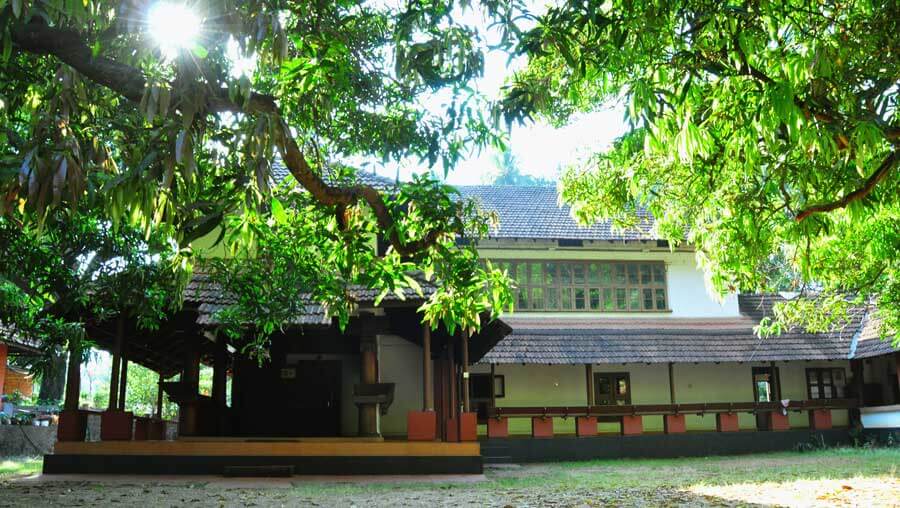
Excerpts from the interview with Unnikrishnan, at his ancestral home at Panniyankara, on the outskirts of the Kozhikode.
Q: At Vatakara in 1971 you were a new face to Kerala. In fact, you were brought in on the scene at the last moment, replacing the incumbent Leela Damodara Menon who had already launched her campaign. What were the circumstances behind your surprise entry in 1971?
A: I was always in politics, though not in Kerala. I was born in Coimbatore and went to Madras for my education. During my days at the Madras Christian College and the Presidency College, I was an active socialist and was close to leaders like Ram Manohar Lohia. At that time we were active in the Young Socialist League, which later became Samajwadi Yuvak Sabha. George Fernandes was another prominent person in the Yuvak Sabha. After my education, I moved to Bombay where I joined the Blitz and it was during this period, I left the socialists and joined the Congress party. I became a member of the AICC from Bombay in the 50s, when Morarji Desai was the leading light in the party there.
Q: What were the circumstances behind your parting of ways with the socialists and joining the Congress under Nehru?
A: Mainly the anti-Nehru tirade of the socialists, especially Ram Manohar Lohia. It was quite irrational. I mean not the criticism as such, it’s always welcome in public life, but what was jarring was the bitter personal attack on Nehru. Initially I thought it was only a joke, but later I realized that there was something very personal about it, something which I could not accept. There was no logic in the way they went after Nehru. After all, it was Nehru himself who had brought all these people to leadership positions when he was heading the All India Congress Committee. He made Jaiprakash Narayan in charge of Labour department in the AICC, he made Lohia in charge of its international affairs. But after independence, they were after Nehru and Nehru alone. So, I could not accept it and had to part ways with them.
I do not know what was behind Lohia’s bitterness towards Nehru. One story I heard later was that Lohia was so angry with Nehru when he got him arrested him over an agitation he had led against royal rule in Nepal. It was actually Lohia who had formulated what is known as India’s Himalayan policy, on what should be the country’s approach towards all these small Himalayan countries. After independence, Lohia led an agitation against the Nepal royal government and Prime Minister Nehru put him in jail. That appears to have infuriated Lohia, because when Indira Gandhi, who was in charge of the party at the time, sent a basket of mangoes to Lohia in jail he had refused to accept it and sent it back to Indira.
Q: How was your relationship with Indira during those days when she was making her efforts to sideline the old guard and take over the Congress party, after the death of Nehru?
A: I was close to Indira from the days she became AICC president for the first time, in 1959. She was a very assertive person. She had asked me to do many important assignments, including taking care of V K Krishna Menon’s election campaign in North Bombay in 1962. Krishna Menon was the Cabinet minister for Defence at the time, a man second only to Nehru. Krishna Menon was related to me through my maternal side. His sister was married to my uncle. That was an election of great national importance, Krishna Menon fighting Acharya J B Kripalani, both national heroes of the freedom struggle. Kripalani was the fiercest critic of Krishna Menon as Defence minister, and his followers were singing this ditty in the streets of Bombay: Chini hamla hotte hain/Menon saab sothe hain/ sona hai tho sone do/ Kripalaniji to aane do…! (China is advancing and Menon saab is sleeping/ let him sleep if he must, but call Kripalaniji to be with us). Nehru took this election as a personal challenge and did everything he could to ensure Menon’s victory. In the end Menon won in a landslide. But a few months later he was forced to resign.
Q: Well, that was after China’s attacks on the border and, India’s failure to defend itself. But how did your relations with Indira continue in the days after Nehru, when she was trying to wrest control of the party?
A: Indira Gandhi was totally different from Nehru. Nehru had a historical vision, an ideology, a commitment to democratic principles and he wanted to change India into a modern country. But frankly, Indira was only a power operator and she took up positions that suited her interests best. In the Congress she opposed the old guard like Morarji Desai and S Nijalingappa and took over the party with her socialist slogans. That was really a ploy and some of us youngsters were behind this socialist image that she had built up. In fact, Krishna Menon could see through this and he told me, “This lady has nothing to do with socialism; what she wants is power and power alone…”
Q: So you took to the Indira camp knowing very well that what she really wanted was power and nothing else?
A: It isn’t like that. The party had been split and the old guard was on the other side. At that time came the presidential election, Indira supporting V V Giri and the old guard putting up Neelam Sanjiva Reddy. Most of the veterans were on the other side, like Morarji Desai, S K Patil, Atulya Ghosh, K Kamaraj and others. I think Kamaraj went to the Morarji camp mainly because he was very close to Sanjiva Reddy. And he was able to see through Indira’s socialist claims. Kamaraj used to taunt us whenever we met, “Enna thampi, socialism vanthuthaa?” (Hello young man, is socialism coming?) But, for me, the question was, who else if not Indira? There really was no alternative after Nehru’s death in Indian politics. We needed to go ahead and Indira was the only leader we could look up to at the time.
Q: Indira initiated many policies that were termed progressive at the time, like stopping of privileges handed over to the royalty like privy purses, nationalization of private banks, garibi hatao slogans, etc. These policies at least gave some preference to the interests of the poorer sections of the Indian people?
A: Yes, she did take a number of measures. But it was P N Haksar, her Principal Advisor, who was behind many of these policies that gave her such an excellent public image. But do you know what she did to Haksar during the emergency? His uncle’s house was raided. They had a shop in Connaught Place which was raided too, because some people had told her he was against Sanjay. She listened to the coterie that was around her son Sanjay at the time.
Q: So it was your experience during the emergency that forced you to rethink your relationship with Indira Gandhi?
A: At a personal level, I would never say that I had left Indira Gandhi. We had known each other from the fifties and that relationship continued till the end. But the experiences of emergency were an eye opener and when we realized that things were going astray, we did make an attempt to draw Indira’s attention to these matters. For example, when rumors came about incidents at Turkman Gate in Delhi, we went to meet her to apprise her of the situation. There were three of us — Subhadra Joshi, Khurshid Alam Khan and myself. All of us were known as Indira loyalists for long. She, however, reacted very sharply to our entreaties. She said, “I know why you have come. You all have ganged up against Sanjay.” This is what she said and refused to listen to us. So there was no point in trying to argue with her and that was the moment of disillusionment with her, as far as I was concerned.
Q: But you were with her at the time of declaration of emergency in June 1975 and during the two years of emergency rule. You stood with her even after the emergency when elections were declared and thousands released from jails. You were her party’s candidate in the 1977 elections. What made you stick to her?
A: It was true we supported Indira Gandhi when she declared emergency and stood with her during the 19 months of emergency and contested on Congress ticket in the 1977 elections. At the time of emergency declaration, we thought some firm actions were required to keep the country going; we found the situation alarming with such terrible convulsions shaking the country’s stability. Foremost in our minds was the thought – Who would replace Indira? She had lost the election case, but in fact, there was no alternative for her at the time. Jagjivan Ram was a prominent minister but he could not be depended on, his single point agenda was to be the Prime Minister. During the emergency, we stood with Indira but tried to warn her about the dangers the country was facing, the problems she was going to face. But she wouldn’t listen. She was, for all practical purposes, a prisoner to her son. She had lost touch with her party rank and file, lost her connections with reality and got estranged from her own past and her political instincts. It was a sad state of affairs back then.
Q: So perhaps it was Indira’s love for her son that forced her into all these misguided steps?
A: Well, I had thought quite hard about it. Perhaps there was some truth in this surmise. She had taken to depending on Sanjay on every matter of importance, and Sanjay was being controlled by a coterie around him, people like Yashpal Kapoor, R K Dhawan and others. They had tremendous hold over him and Indira became a prisoner to them. All decisions were made at the behest of this group and that was the sad reality of the time.
Q: What really made her think about elections in 1977? Who persuaded her to go for elections at the time?
A: There were so many circumstances. She never had any real idea how far she had estranged herself from the Indian people. Then there were also others who tried to tell her how her name was being sullied, especially in the Western countries. American Ambassador T N Kaul, for example, told her she had lost her image in the West, a situation she did not like. She had a great concern for her public image, especially in the West. If somebody told her she had little public appreciation in the Socialist countries, she would not have worried about it. But the West was different and so Kaul’s counsel carried weight. To that extent, it appears Indira was not willing to go all along with Sanjay and his group.
Q: After the elections, you were part of the Opposition in Parliament when Janata Party formed a government under Morarji, but within the party what prompted you to take a different line towards Indira and her disgraced son?
A: The Congress had won large number of seats in states like Kerala, Karnataka, and Andhra Pradesh though in the North it was a big setback. We were the main opposition in Parliament and we never wavered in our role as Opposition. Within the party, there was much criticism and soul searching, and many leaders had started voicing their concerns openly. I was one of those who took a firm line and we formed a committee with Sharad Pawar as president and I as general secretary to demand changes in the party. But we knew such a line of being critics in the party as well as the Opposition in Parliament could not be held on for long. As time passed many of the Indira-baiters were drifting back to her camp and there was a need to take a position, whether to be with Indira or not. I remember the case of A K Antony at the time. He was fiercely critical of Indira. When the Working Committee met with Swaran Singh as chairman (after Indira split the Congress again in January 1978), and the meeting decided to support Indira Gandhi in her re-election campaign at Chikmagalur in Karnataka, Antony said not a word against it in the meeting. But a few days later, in Thiruvananthapuram, he made a hue and cry about it and resigned from the party. The funniest part of the story is that the same Antony went back to Indira once she was back in power, while we remained firmly in the Opposition. Anyway, that was when I decided to move to the Opposition even when Indira came back to power two years after her defeat. In Kerala, I received the support of the CPM-led Left Democratic Front to return to Parliament. In 1991, the Congress and the Muslim League joined hands with BJP to beat me there, but I could still win with a substantial majority.
Q: You spent almost three decades in Indian Parliament, playing key roles in a period of great convulsions and transitions. How do you look back to your own record in Parliament?
A: That depends on the role you take upon yourself in politics. I was not a natural ‘Opposition person’, but the sort of changes in our politics made me drift towards the Opposition. Those were very interesting times. I worked with great people in our politics. As a parliamentarian, I think I was able to do some meaningful work exposing corruption in high places, an epidemic that was emerging as the greatest issue in our public life. It was I who brought the Snamprogetti scandal to Parliament, and then I took up Bofors. All this made Rajiv Gandhi quite cut up with me at the time. I did play a key role in exposing many of these issues, but then I also realized there is very little one can do to stop corruption in our public life. This is the Indian social reality. If the middle class is willing to tolerate corruption, then so little can be done to effectively stop it — unless there is a basic change at the social level. So, we can get some attention, make some noise, perhaps some heads might roll, but in the end the whole corrupt edifice would continue to survive. That is the fact.
Q: You were part of the efforts to build political alternatives to Congress and BJP at the centre in the 1980s and 90s. They were all short-lived. You were a Cabinet minister in the V P Singh government which resigned after two years in power. The alternatives seem to have failed to bring in stability. What lessons do they bring us?
A: Yes, stability is a big issue. We must strive to bring in a stable government. Going by the way things shape up today, it appears to me that we are likely to remove Narendra Modi and bring in a government that will keep the rightist forces at bay. The Sangh Parivar did make an effort to consolidate power, but going by the recent trends it seems to me that such a Hindu consolidation is not working. We will have an alternative, but who will lead the next government is anybody’s guess. Its stability will also be a matter of concern.
Q: Talking about alternatives, why did the V P Singh government fail? How do you assess the performance of the government in which you were a part?
A: In the matter of governance, I would not say it made any big gains. It was hemmed in by so many forces, often contradictory forces. But we were able to present a picture of a pragmatic alternative, with some policy initiatives that had great national significance. But again, V P Singh bowed too much to the pressures of forces like BJP who supported the government. He was giving them too much space, too much importance. He gave them more seats in places like Uttar Pradesh in the 1991 elections than they deserved. I had warned him that this is a mistake. I told Singh back then, “Look you are bringing up a monster”. That is what really happened. That policy of appeasement was wrong, but V P Singh realized it only later.
Q: Now are we going back to the same experiences of filler governments once again, governments that would survive for a few weeks or months, then fall under its own weight and internal contradictions, leaving the country groping in the dark to find its way ahead?
A: Well, I do not think we will go back to a situation of groping in the dark to find our way. We will have a government that would provide an alternative to the BJP and its rightist policies. That is the experience from our past, and I suppose such a government would have to draw upon the policies of the Congress governments in the past, take lessons from our secular democratic traditions. That is what I expect for the country in the coming days. I am hopeful.

